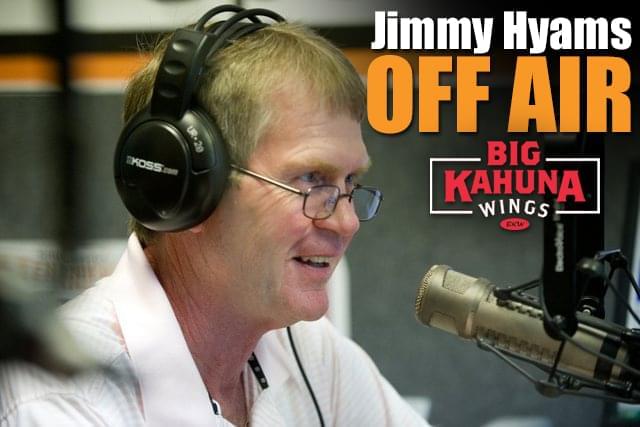By Jimmy Hyams
A highly successful SEC defensive coordinator once told me he did not want to coach at a school that ran an uptempo0 offense.
Why?
The defensive numbers would be skewed.
A high-octane offense would put the defense in harm’s way with a quick score or a quick punt or two to four additional possessions per game.
That could lead to a tired defense and more yards and points allowed.
That has been the case in some of Tennessee’s games under second-year coach Josh Heupel.
It was NOT the case in the Vols’ 38-33 victory over Florida.
Tennessee had only one quick possession, that was early in the second quarter, when the defense should not have been tired.
Otherwise, Tennessee had drives of 7, 10, 8 and 12 plays in the first half, allowing ample rest for the defense. The Vols had drives of 9, 5, 10 and 7 plays in the second half. UT also scored on six of those nine possessions, allowing more time for a defense to catch its breath. And UT’s nine possessions were the fewest in a game under Heupel.
Florida had 10 possessions, stealing one when it recovered an onside kick in the final seconds.
So you can’t blame Tennessee’s defensive deficiencies against Florida on a hurry-up offense.
You can blame it on poor defense, in particular in the secondary.
In the first half, Florida had drives of 11, 9, 8, 8 and 6 plays.
In the second half, Florida had drives of 12, 13, 10, 7 then 4 plays, when Anthony Richardson threw an interception on the last play of the game.
Richardson, who did not throw a touchdown pass in any of the first three games of the season, torched Tennessee for a career-high 453 yards and two scores. He might not have another 453-yard game in his career. He completed 24 of 44 passes. He also ran for 62 yards and two touchdowns on 17 carries.
Tennessee made Richardson look like Cam Newton.
Historically, Heupel’s offenses have been prolific and the defenses rather dismal.
This season, UT’s offense is No. 1 in the nation in total yards but the defense ranks 96th.
Last year, UT was ninth in offense, 99th in defense.
In Heupel’s three years at Central Florida, the Knights were second, second and fifth in total offense, but 123, 32 and 95 in total defense.
In Heupel’s two years as Missouri’s offensive coordinators (2016-17), the Tigers were eighth and 13th in total offense but 83 and 118 in total defense.
Those averages: fifth in total offense, 92 in total defense.
Those numbers paint a problematic picture, but there are exceptions.
And the Florida game was an exception.
UT’s defense play against Florida brought to light two major concerns:
- Getting off the field. Last year, Tennessee was 13th in the SEC in third-down defense, allowing opponents to convert 42% of the time. It was allowing only 22% until Florida managed to connect on 7 of 15 third downs and 5 of 6 fourth downs. It doesn’t do you any good to stop a team on third down if it converts on fourth down.
- Pass defense. The secondary against the Gators was akin to UT’s secondary against Purdue in the Music City Bowl. Receivers were often left wide open. Sometimes, Richardson’s hardest decision was which open receiver to target.
The inability to cover receivers doesn’t appear to be a scheme problem or coaching problem. It appears to be a talent problem. And that is a huge concern heading into Saturday’s noon ET kickoff at LSU.
Can you name a UT defensive back that you feel is a lock-down defender, someone who could guard a Cedric Tillman or Jalin Hyatt man-to-man?
LSU quarterback Jayden Daniels isn’t the most accurate passer in the SEC (he was 8 of 20 against Auburn), but if given time and open receivers, he could put up big numbers in the passing game.
Daniels is also mobile, which puts more pressure on the secondary to determine when to leave a receiver to chase after Daniels.
Daniels was injured against Auburn and didn’t finish the game, appearing to have some type knee or ankle problem.
If his mobility is limited, that works in UT’s favor.
If backup Doug Nussmeier gets the call, UT won’t have to worry about a running quarterback.
But it will still have to worry about covering receivers.
That was a major failure against Florida — and it had nothing to do with UT’s up-tempo attack.
Sponsored by Big Kahuna Wings: The wings that changed it all





















